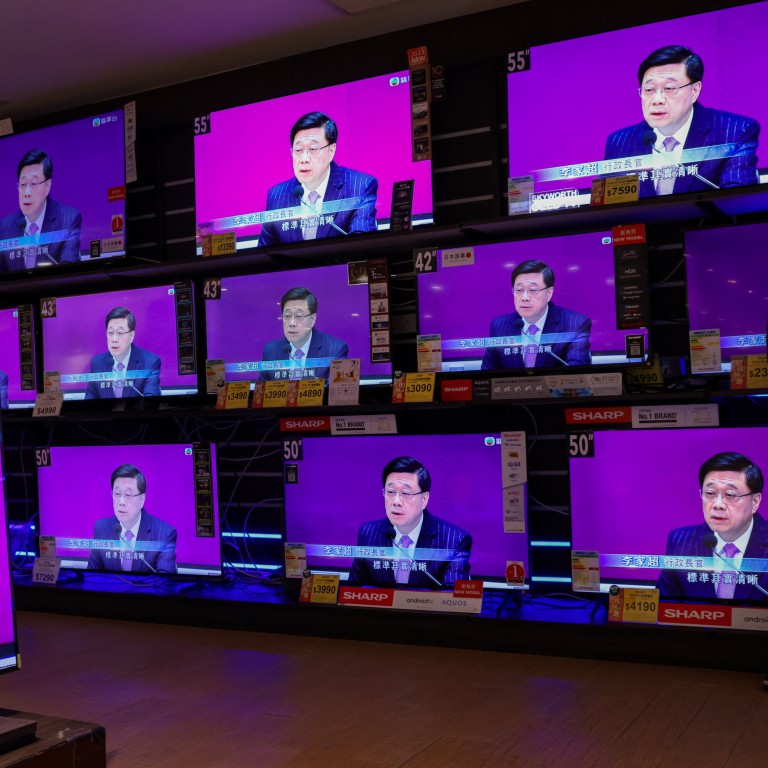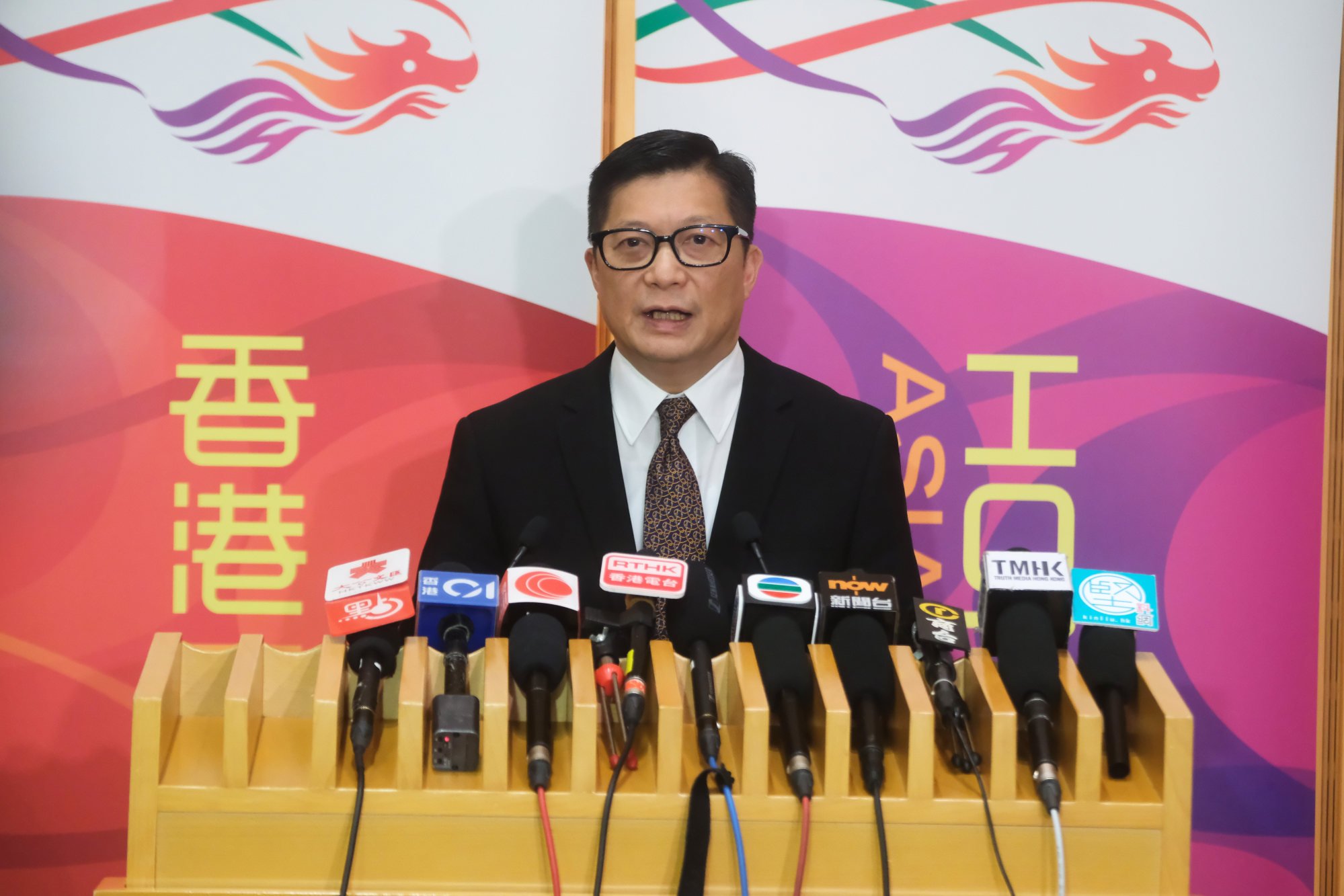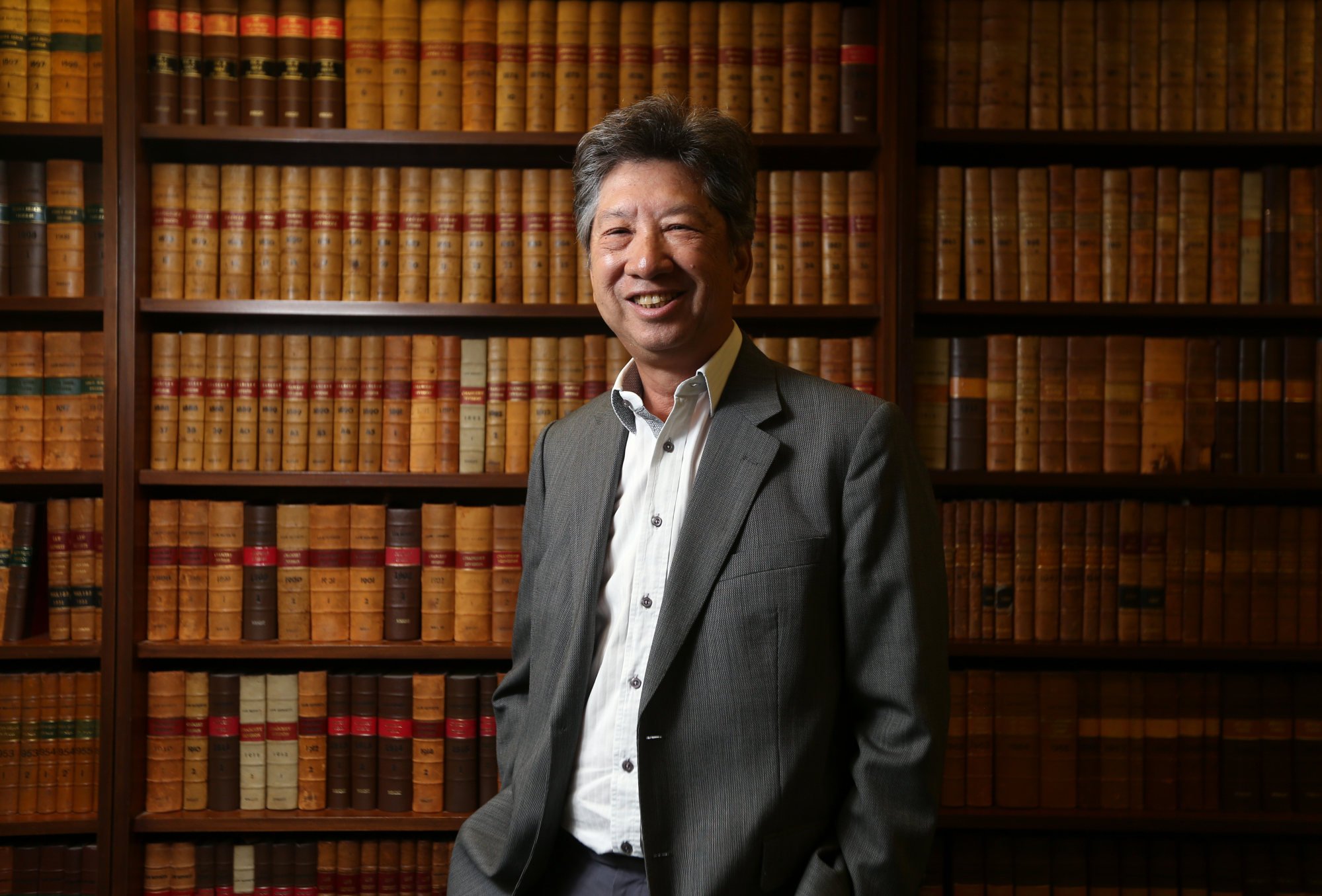
More clarity needed on Hong Kong’s Article 23 domestic security law to reassure investors, say legal experts and business chambers
- Secretary for Security Chris Tang seeks to allay concerns over proposed law by rebutting what he calls misconceptions
- European Chamber of Commerce says it will pay ‘particular attention’ to issues potentially concerning Hong Kong’s ‘core values’
Secretary for Security Chris Tang Ping-keung on Wednesday sought to allay concerns over the proposed law by rebutting what he called misconceptions, as officials began their explanatory work by meeting members of the financial and news industries as well as politicians.

The Ministry of Foreign Affairs in Beijing also threw its weight behind local authorities’ efforts, calling the legislation an “urgent requirement” for Hong Kong’s stability.
Hong Kong leader unveils details of domestic national security legislation
The State Council’s Hong Kong and Macau Affairs Office also wrote an article published by Xinhua, saying the proposed legislation was widely supported locally because residents were reasonable, understood national security threats following the 2019 social unrest and also longed for development.
The city on Tuesday launched a 30-day consultation exercise to gather public feedback on the sweeping domestic national security legislation that targets treason, insurrection, sabotage, foreign interference, theft of state secrets and espionage.
Beijing’s response came after Britain echoed the European Union in saying it was closely monitoring the issue as the city’s “freedoms had been significantly eroded under the guise of national security”.
“It is important that new legislation aligns with international standards and upholds the rights promised to the people of Hong Kong,” the UK’s Foreign, Commonwealth and Development Office said.
How Hong Kong plans to amend laws, create new offences for Article 23 legislation
Barrister Ronny Tong Ka-wah, a member of the government’s key decision-making Executive Council, on Wednesday urged authorities to more clearly define “state secrets” outlined in the consultation document on the legislation, which the city is duty bound to enact under Article 23 of its Basic Law mini-constitution.
The seven types of secrets listed in the consultation paper cover information about major policy decisions on national and local affairs, economic, social, technological or scientific developments of the country or city, and the external affairs of Hong Kong and its relationship with Beijing.

“Information on military or diplomatic arrangements are more clearly understood by the public to be state secrets, but for technological and economic development policies, I agree that the line should be drawn more clearly,” Tong told a radio show.
“This is beneficial for the flow of information, as Hong Kong is an international financial hub and we are dependent on the flow of information and transparency to strengthen our position.”
Ryan Mitchell, an associate professor of law at Chinese University, said the draft made an effort to clarify that “reasonable and genuine criticism of government policies based on objective facts” and suggestions for improvement were still permitted, and that legitimate expression on such matters was not intended to be limited.
Overseas lawyers ‘will need approval to handle cases under new Hong Kong security law’
Noting it was important to maintain effective governance and a pluralistic society that was attractive to international investors and the global business community, Mitchell said he wondered if further efforts could be made to ensure that the principle was reflected in the legislation, such as by reducing any ambiguity.
Thomas Kellogg, executive director of the Centre for Asian Law at Georgetown University in Washington, said it was uncommon in other countries’ law on state secrets to cover a broad range of economic and policy information.
“Certainly, the [mainland Chinese] law has been used to cover such information, in ways that have impacted both the business environment and general media freedom,” he said.
“Hong Kong has long been a key business hub in part because of its robust media and information environment – this element of the Article 23 proposals puts one of Hong Kong’s key advantages at risk.”
Explain Hong Kong’s Article 23 to show government has ‘nothing to hide’: scholars
The European Chamber of Commerce said it would pay “particular attention” to issues potentially concerning the “core values” that made Hong Kong an attractive place in which to do business.
That included its strong protection of fundamental rights, the rule of law, an independent judiciary, and the free flow of information, it added.
Tang, the security minister, took the initiative to rebut what he described as rumours, after he and Deputy Secretary for Justice Horace Cheung Kwok-kwan met politicians, as well as finance sector and news industry representatives, over the legislation.
He raised the example of an attendee at a consultation session with the finance sector, who asked if he would be breaking the new law on state secrets by publishing an economic research report.
Development, security ‘two wheels of cart’, Beijing’s top man in Hong Kong says
Tang said it would not run afoul of the law as long as the information was not obtained from classified materials and did not fall under the seven state secret categories, and that the author had no intention of endangering national security.
He also addressed calls on the need for a public interest exception on revealing national secrets, saying “public interest must be of very high public interest” and not to “satisfy curiosity”.
Cheung also dismissed suggestions that new offences proposed in the legislation meant the prosecution threshold had been lowered, and urged the public not to worry.
Authorities have set up a “rebuttal team” led by Tang to counter online attacks on the proposed law, vowing to debunk a smear campaign by “hostile forces”, especially on social media.
Additional reporting by Lilian Cheng


